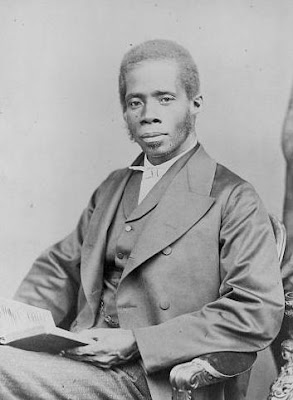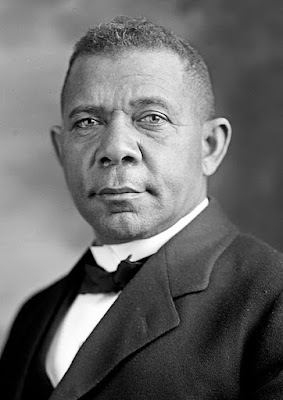Caroline Glick: Stability for our enemies
Since the 1990s, the dominant view in Israel's national security community has been that Israel's top priority in relation to the Palestinians is to maintain the stability of their leadership. This is the case in relation to both the Fatah-controlled Palestinian Authority in Judea and Samaria and the Hamas regime in Gaza.
The rationale behind this view is that despite their hostility, if the regimes lose control, things will be worse, not better for Israel. Israel will have to take over, at great cost in lives and international stature. In other words, it's either Fatah and Hamas or the Israel Defense Forces. And Israel's security establishment prefers the former.
To achieve the goal of preserving the Fatah regime, Israel's generals and their think tank colleagues have long insisted the government ensure its financial viability. In practice, this has required Israel to collect customs and other indirect taxes for the PA and transfer the funds, with no strings attached to the PA every month. The fact that the PA has always used large portions of its budget to finance terrorism was of little consequence to the generals and their colleagues.
In the case of Hamas-controlled Gaza, preserving the terrorist regime has required Israel to permit the PA to transfer funds to its employees in Gaza, even though by paying their salaries the PA effectively enabled Hamas to devote its resources solely to waging its war against Israel. Preserving Hamas has also involved Israel allowing Qatar to send truckloads of cash to Gaza to keep Hamas's terror state afloat.
Safe in power – thanks to Israel – Fatah has been free to devote its energies waging its multidimensional war against Israel. It funds terrorists – with the tax arrears Israel collects for it. It incites terror on its media organs – again paid for by the taxes Israel transfers. It pays its security forces and indoctrinates its members to seek Israel's destruction. It engages in large-scale theft of government lands and illegal construction in Judea and Samaria to choke off Jewish communities. And the Fatah-PA wages diplomatic war against Israel at the UN, in the world capitals, and increasingly at the International Criminal Court.
Safe in power in Gaza, Hamas builds up its forces. It develops collaborative ties with Hezbollah and the Houthis and strengthens its client relationship with both Iran and Turkey. And every so often, it opens another missile offensive against aimed at killing and terrorizing Israeli civilians.
Whether they like it or not, the denizens of Hamastan and Fatahland alike have no choice other than to live under the jackboot of their regimes. Thanks to Israel – and its stability minded security experts – they have no chance of competing for power or rebelling.
Oslo revisited
The days of the Oslo Accords were dark days for Israel. Fortunately, the public put a stop to the Oslo trend before it endangered the very fabric of the State of Israel.
As Tisha B'Av rolls closer, it behooves us to ponder how Israel managed to extricate itself from the trap laid for her in the 1990’s by the infamous Yasser Arafat and by the “liberation” terror organization that he led.
The Oslo Accords cost us over one thousand casualties, but the dangerous veering toward the sea, eventually slowed. Nowadays we are discussing sovereignty – not “victims of peace”. There is plenty of room for improvement in our diplomatic discourse even today. But everything is relative.
In contrast, remember what happened in the darkest days the Jewish people ever experienced, ever – in Nazi Europe. You remember the famous poem, by a German Lutheran leader called Martin Niemöller, about being passive and keeping silent:
“First they came for the socialists, and I did not speak out—
Because I was not a socialist.
Then they came for the trade unionists, and I did not speak out—
Because I was not a trade unionist.
Then they came for the Jews, and I did not speak out—
Because I was not a Jew.
Then they came for me—and there was no one left to speak for me.”
The Oslo Accords, horrific as they were and still are, never reached anywhere near the point Europe reached during Nazi days. Why? Not because Palestinian Arab leaders are lacking in antisemitism. They are not. The central reason was that during Hitler’s day, there was no State of Israel. But there was also another reason. The second reason was that prominent people in Nazi Germany simply did not do very much about it, when ugly things began to happen in their country.
In Israel however, way before things slid into a complete abyss, people did things. People stood up and said, this is not cool. Not just the downtrodden, not just the persecuted, stood up and banged on the national table. Prominent people stood up and said this – not many of them, but enough of them.
Head of PA’s Mission to UK Lies and Distorts 1948 History
However, the op-ed in The Times (paywall) by Sammy Stein, co-chair of Glasgow Friends of Israel, he’s referring to doesn’t even allude to the Zomlot family’s dislocation during the Arab-Israeli war, and doesn’t accuse Palestinians of lying about their flight during that time.
In other words, Zomlot’s accusation — that Stein accused Zomlot of lying, is itself a lie.
Rather, Stein’s piece largely focuses on what he refers to as the “politicised hijacking of a term Nakba,” and characterizes “The Nakba” as self-inflicted by the Arab leaders who launched a war of annihilation against Israel instead of accepting partition.
Zomlot continues to mislead in a subsequent paragraph:
Palestinian refugees, scholars everywhere, as well as a growing number of Israeli historians, have all attested to the reality of al-Nakba (the “Catastrophe”), when hundreds of towns were depopulated, looted and destroyed. Overall, more than half the population of Palestine was expelled. This is what Mr Stein refers to as “Israel’s success”
First, it’s not true that all of the refugees were expelled. Most fled due to orders from Arab military and political leaders, or of their own accord — to escape the war. More deceiving, however, is Zomlot’s claim that Stein referred to the Palestinian exodus as an Israeli “success.”
Here are the relevant paragraphs from Stein’s op-ed, where he refers to Israeli success:
The politicised hijacking of a term Nakba which bemoaned the absence of pan-Arab unity and castigated Arabs for their failings, into a term of abuse against Israel is a calculated and continuous act of deception, designed to absolve Arab states of blame and condemn Israel for successfully defending itself against attack.
…
Today Palestinians and their apologists worldwide might stop to consider these realities and face up to the fact that Nakba describes their failure, not Israel’s success.
It’s clear that Stein is referring to Israel’s survival in the Arab war as an Israeli “success” — not the flight of Palestinian refugees.
To see more deceit from Zomlont, read this post on his recent appearance on BBC’s “Hardtalk.”







 Damascus, July 23 - Cryptozoologists and other enthusiasts of paranormal phenomena have begun including Assad regime claims of thwarted Israeli airborne operations in their logs of unconfirmed-but-definitely-real incidents, opening a new realm in which the credulous can enjoy the sense of superiority and insider status born of knowing something most other people are too closed-minded to accept.
Damascus, July 23 - Cryptozoologists and other enthusiasts of paranormal phenomena have begun including Assad regime claims of thwarted Israeli airborne operations in their logs of unconfirmed-but-definitely-real incidents, opening a new realm in which the credulous can enjoy the sense of superiority and insider status born of knowing something most other people are too closed-minded to accept.

































